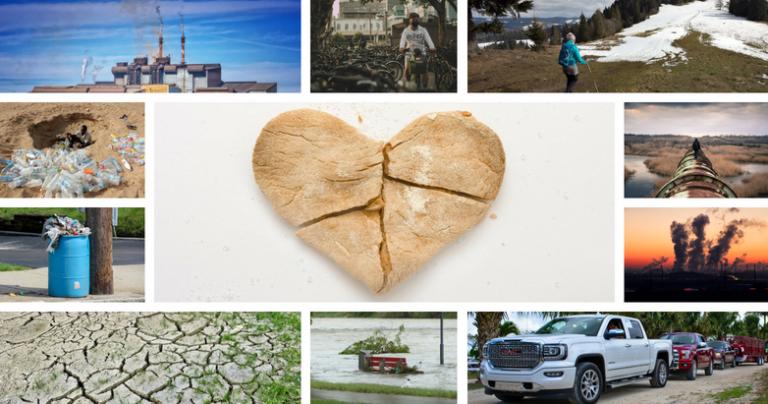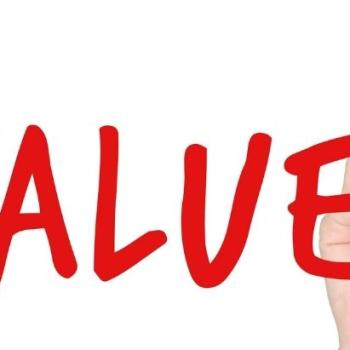
I’ve been aware of the man-made effects on global warming since the Kyoto Accord was signed in 1992. I have tried to live my life in concert with that knowledge. My efforts have fluctuated somewhat over the years, but they have never fallen below a certain standard that I set when I was in my twenties.
In 2004, I read a book called, The Last Hours of Ancient Sunlight by Thom Hartmann, and spiraled into a depressed state for over six months. No matter how I racked my brain, I couldn’t see how humanity could reverse the effects. I recouped, not because I found a grand solution, but because I had to.
Shocked by Truck Ownership in Texas
I was raised in Iceland. The awareness of climate change there is pervasive and there is a cultural expectation made of people to do something constructive. As you can imagine, I was shocked when I moved to Texas in 2010. From the outside, most people seemed oblivious to the link between their behavior and the man-made influence on global warming.
One prominent feature that began to get on my nerves was the large-scale ownership of trucks. Seeing people using these behemoths as their family cars in suburban settings started to signify a lack of general awareness about the impending problem (not to mention the fact that these cars block streets and cause danger in traffic due to their size and weight).
F-U Trucks
On occasion, I would allow my irritation to show while driving around with my family. I would openly question why people needed these trucks when they were not using them for work or ranching.
Once, when I was driving with my then thirteen-year-old son, I played with the F-150 brand and said they should be called F-U trucks instead. It made for a good laugh, but it stayed with me. I couldn’t shake the feeling that people who chose to be oblivious about their impact were giving everyone else the finger.
Biology Project
Evidently, this play on words stuck with my son as well. Last week, now at fifteen, he came home from biology class, visibly shaken by the information he had learned about global warming, like I had been before him, and said that he was going to do a project about F-U trucks.
He is a good student (and he never swears, really!), which meant that, aside from the working title, this was a well thought out project. He was going to gather information about the carbon footprint of trucks and compare them to more fuel-efficient cars. He explained to me enthusiastically that when people would see the difference, they would change their behavior.
Heartbreaking Explanation
It was heartbreaking to have to explain to him that a large number of people don’t ‘believe’ in climate change.
“How can they not believe?” he exclaimed. “Don’t they understand the science?”
I responded that I didn’t know, but that the reasons were both political and religious. Some religious people were skeptical of scientists, so much so that they didn’t believe scientific findings. Some of them even believed that God had given them the Earth to use as they pleased and that they were doing God’s bidding by using the natural resources provided to them (my son spun around in disbelief when I told him that).
Then I explained that the USA is (now) the only country in the world that doesn’t affirm mankind’s influence on climate change. He couldn’t believe it.
The Missing Link
“How? Why? Can’t we just show them the numbers? Explain to them the science?”
My son was visibly shaken and understandably so. He is to inherit this situation.
I told him that I’d heard a climate scientist lament that in the past thirty years the scientific community had gotten very good at creating accurate models and getting the science right, but had failed to win over hearts and minds of skeptics.
There Must Be Something We Can Do, Right?
“What can we do?!” he bellowed. “There must be something we can do.”
Over the years, I have taught my son that there is nothing wrong with saying, “I don’t know.” This time, it felt different. I knew from experience that trying to inundate climate skeptics with information hasn’t worked. I knew that making emotional pleas about the future of their children hasn’t worked. And, of course, being angry with them and calling them names hasn’t done anything but make them dig their heels in even deeper.
So, this time, when I uttered the words, “I don’t know,” I felt helpless, hopeless even. I wished I could have somehow reassured him and told him that we would solve this. I couldn’t. All I could say was: “We haven’t figured out how to convince them, yet. Maybe your generation will.”
Hopefully, we won’t have to wait that long. I don’t have the answers—as I have displayed above—but we need to find a way to win skeptics over so that we can have the real debate about what to do instead of bickering about whether or not it’s happening.
Hopefully, by that time, it won’t be too late.
Gudjon Bergmann
Interfaith Minister, Author, and Speaker
Founder of Harmony Interfaith Initiative
Follow me on Facebook
Pictures: CC0 License
















